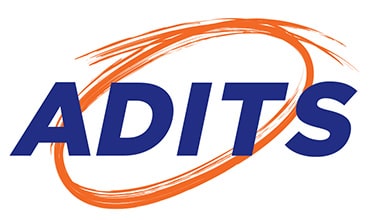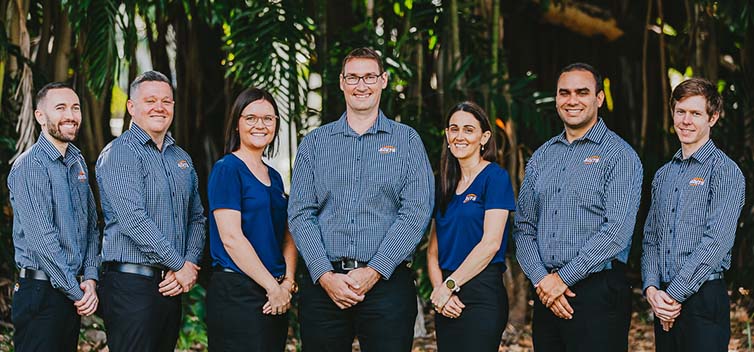In 2020, Northside Clinic was ordered by the Privacy Commissioner to pay $16,400 in damages to two patients after sending their information to the wrong email address. It was a simple mistake – but a costly one.
The clinic breached the Australian Privacy Principles (APPs), specifically APP 6, which details information disclosure provisions, and APP 11, requiring entities to take reasonable steps to protect personal information they hold.
(By the way, did you know that there’s one simple solution that could have helped Northside if they used it? Read it towards the end of the article.)
Is Your Medical Practice Compliant with the Privacy Act?
What are the APPs that Northside violated anyway? They are the 13 privacy principles that stand as “the cornerstone of the privacy protection framework in the Privacy Act 1988.” They specify the standards, rights, and obligations around personal information when collected, used, and disclosed by any entity. Violations can lead to regulatory action and penalties that can reach $10 million.
Are you sure your medical practice follows the entire Privacy Act 1988 (Cth)? Are you knowledgeable about all the APPs?
Who do you consult about privacy laws and how do you ensure your compliance?
Data Privacy Policies You Should Know About – and Comply With
Test yourself: Go through some of the salient points of our privacy laws below. If you know and comply with each, tick it off:
- Collect information only if needed, for a specific purpose.
- Information you collect and store must be relevant and up-to-date.
- You must inform the person about the purpose for collecting their information.
- Disclose to the person the identity of the one who will receive the information.
- Never collect information without consent, unless: the law allows it; it is necessary for a health service; serious, imminent threats to life or health exist; or it is required for management, research, or statistical purposes.
- Make sure you protect the information from being lost, misused, accessed with no authorisation, modified, or disclosed.
- Destroy information when no longer needed.
- You may only use or disclose information for the primary purpose why it was collected, unless: the person has consented otherwise, the purpose is related to the primary purpose, it is required for research or statistical purposes.
- Only disclose information to a responsible person.
- You must allow persons access to information about them.
- Access to information should be withheld when: it poses a serious threat to life or health, the privacy of others will be affected, information is related to existing/anticipated legal proceedings; access would be unlawful; there is a law enforcement or national security issue.
They are surely not exhaustive, but pretty much cover the gist of data privacy policies. So, how many of them do you know and follow?
Does your medical practice have all your bases covered? One of the ways you can ensure compliance is by having IT services provider to help you.
7 Ways IT Services can Help You Comply with Privacy Laws
IT services can enhance your compliance efforts while strengthening your data security. Below we list seven ways they can do help you:
1. Privacy & Data Protection
With IT services, it can be easier for you to comply with privacy and data protection measures such as the Australian Privacy Act and the My Health Records Act. They can help you implement secure storage solutions, access controls, encryption, and regular audits to protect patient information.
- Secure storage solutions can help ensure your patient information cannot be accessed by unauthorised persons. This works best with proper access policies that set controls on who can access your data.
- With data encryption, patient data will be unreadable to unauthorised individuals, on the slim chance that they are able to gain access.
- You can have regular IT audits, which can help identify security vulnerabilities, compliance with regulations, and employee training gaps.
- In case of a cyber breach, system and data backups can ensure that downtime will be minimised, and data can be quickly restored.
- Overall, IT services can help to elevate your cyber security maturity level. This can be a clear demonstration that your medical practice is seriously taking steps to protect patient data.
2. Health Identifiers Service
An IT services provider might help your medical practice to integrate with the Australian National Health Identifiers Service (HI Service), ensuring accurate patient identification and compliance with the Healthcare Identifiers Act. This enables seamless sharing of health information across different healthcare providers.
3. eHealth Record Systems
To ensure compliance with relevant regulations, IT services can help you set up and manage electronic health record (EHR) systems. This includes secure access, proper data handling, and integration with other clinical systems.
4. Clinical Coding & Documentation
IT services can supply tools and systems that support accurate clinical coding and documentation practices. This will allow you to comply with the Australian Coding Standards and improve the quality and integrity of medical records.
5. Telehealth & Telemedicine Solutions
Telehealth and telemedicine solutions that comply with the guidelines set by the Australian Digital Health Agency could be another benefit of having IT services. Those could include secure video conferencing platforms, remote patient monitoring, and data privacy considerations.
6. Secure Messaging Solutions
You may be able to more easily adopt secure messaging platforms that comply with the Secure Messaging Industry Offer (SMIO) framework. This ensures secure communication and interoperability between healthcare providers while protecting patient information.
7. Compliance Auditing & Reporting
Conducting regular compliance audits and generating reports can be made easier with IT services, helping to ensure adherence to relevant regulations. This includes monitoring your access logs, tracking security incidents, and providing evidence of compliance for regulatory authorities.
Getting Help
If compliance feels like an overwhelming task, there’s a chance that an IT solutions provider can help you. ADITS, for one, has worked with healthcare and medical professionals in past years. To enquire about our IT services, contact our friendly team at 1300 361 984 or request a free consultation now.
(You can also ask us about that one simple solution that could have helped Northside – but the short answer is Microsoft Outlook, which has an email recall feature.)
Not Riskless but Less Risk
Having IT services will not give you 100% foolproof compliance, but IT professionals can guide you and alert you to possible issues – helping reduce your risks as regards data privacy. By leveraging IT services, you could enhance your compliance efforts, strengthen data security, and meet the ever-evolving regulatory demands of the healthcare industry.



